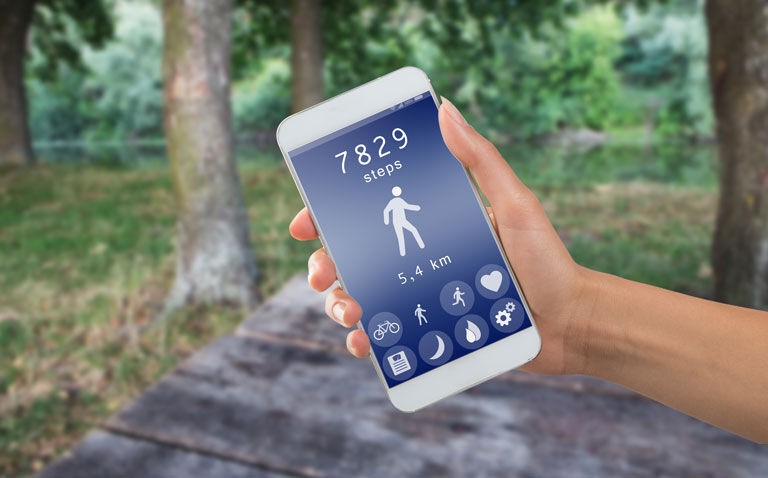Greater smartphone-recorded daily steps over a 2-year period led to reductions in cardiovascular risk but which varied in men and women
Increased smartphone-recorded daily steps assessed over a two-year period are associated with a beneficial effect on cardiovascular risk factors, although not all of these positive effects are seen in both sexes according to a large cohort study by Japanese researchers.
There is a good deal of evidence indicating that a higher number of daily steps is associated with a reduced risk of all-cause mortality. In fact, a 2020 systematic review concluded that the evidence from longitudinal data consistently demonstrated that walking an additional 1000 steps per day can help lower the risk of all-cause and cardiovascular mortality.
However, an important limitation from virtually all of the studies included in the review is that the daily step-count was recorded at a single point in time (usually at baseline) in the majority of cases, although some studies did incorporate a second measurement. Smartphone-recorded daily steps have been suggested to be of practical use to individuals, clinicians, and researchers for monitoring physical activity.
Moreover, the use of smartphone-recorded daily steps has been suggested in the 2018 US physical activity guideline to enable self-monitoring, deliver messages, and provide support, all of which are helpful in promoting regular physical activity.
As a result, in the present study, the Japanese researchers made use of smartphone-recorded consecutive daily steps over a period of 2 years to explore if there was an associated change in cardiovascular disease-related measures.
To examine any link, the team used information held within a Japanese national health check-up, a national health insurance claims and a commercial mobile phone app database (used by workers who belonged to work-based health insurance schemes and which provided daily step information). The primary exposure of interest was the smartphone-recorded daily step count between two annual healthcare checks which were between 24 and 35 months apart.
The primary outcomes were changes in markers at follow-up health checks in comparison to baseline. The researchers included several measures including weight, body mass index (BMI), systolic and diastolic blood pressure, HDL and LDL cholesterol, triglycerides, fasting glucose levels and HbA1c (%). In addition, demographic, lifestyle and co-morbidity data were also collected and adjusted for in their analysis.
Smartphone-recorded daily steps and cardiovascular outcomes
A total of 15,708 participants with a mean age of 44.1 years (23.5% female) were included in the study and daily step information was available for a period of two years. Overall, the median number of daily steps was higher for men than women (6674 vs 5027).
For most changes, there was an almost linear and inverse relationship between changes in weight or BMI and the number of steps but also apparent differences between men and women. For example, in men, each additional 1000 steps/day was associated with a 0.32 loss in weight, -0.11 reduction in BMI and 0.37 lowering in waist. In women, however, the same inverse association was only evident above 5000 steps/day (0.18 loss in weight).
Similarly, the inverse relationship remained for systolic and diastolic blood pressure but only in men, with, for instance, a reduction in systolic pressure of 0.33mmHg for each additional 1000 steps/day. For lipid changes, both HDL and triglycerides were reduced with increased steps/day in both sexes although significant changes in LDL were only apparent for men.
Finally, while improvements in fasting glucose levels occurred in both sexes, there were similar effects on fasting glucose levels in both sexes though a significant negative association was observed for changes in % HbA1c but only for women.
The authors concluded that overall increases in smartphone-recorded daily steps was associated with positive changes in several cardiovascular risk factors although there were differences between the sexes for some factors. They added that smartphone-recorded steps may be a useful clinical tool to gauge cardiovascular health.
Citation
Hamaya R et al. Association of Smartphone‐Recorded Steps Over Years and Change in Cardiovascular Risk Factors Among Working‐Age Adults J Am Heart Assoc 2022










